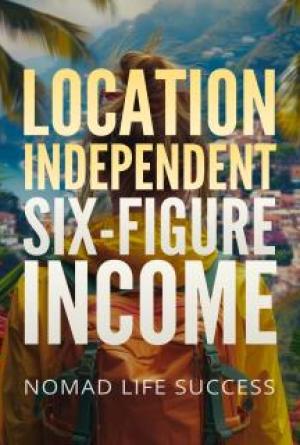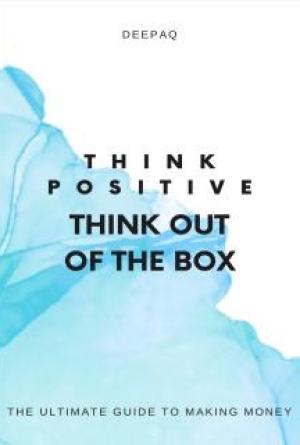1
1
EXPLOIT
(A personal development exercise)
-------------------------------------------------------
I could laugh at this statement: “Soberness comes after realization”, yet I cannot deny the truth it speaks to my very being. Having it in plain sentence, I’d say I’ve realized things and become sober in turn. Not sober like a tortoise having to hide in its shell but sober like becoming a better me. This is what “exploit” aims at achieving; making a better you. Knowing about the subject matter is good but it’s not enough to just have the knowledge, there is a place of application.
It is my desire that you make the very best of this book; do not lose sight of what’s really needed for your personal development.
I encourage you to also see other materials on the subject matter.
CJ.
ONE
WHAT IS PERSONAL DEVELOPMENT?
Imagine you were asked this question in a whole new environment and in order not to sound like an expert, maybe also because you’re unsure of the other person’s intelligence quotient, you simply say “Personal development means personal development.” believe me, you cannot be criticized all because you gave such answer. You may then be required to expatiate and this is where you get to say all you know about it.
The word “personal” concerns a person. “Development” means advancement or improvement.
Putting the two words together, one can easily say: “Personal development deals with a person’s advancement. Having an understanding of how personal development works as well as the key things that must be taken into consideration for personal development to take root is very important.
According to the Wikipedia encyclopedia, “Personal development includes activities that improve awareness and identity, develop talents and potential, build human capital and facilitate employability, enhance quality of life and contribute to the realization of dreams and aspirations”.
The above definition shows the results of certain activities in personal development. In other words, there can’t be personal advancement in awareness and identity, development of talents and potential, building of human capital and facilitation of employability, enhancement of quality of life and contribution to the realization of dreams and aspirations without these activities.
An individual can list quite a number of things as to achieving these results. To him or her, it could be what works well as envisioned (perspective). To simply put, the key elements of personal development known generally and also seen in the aforementioned definition are:
- Self-awareness - know “you”
- Self-knowledge - understand “you”
- Identity - who you are
- Talents - natural abilities
- Potential - abilities that can lead to success through development
- Human capital - your knowledge, skills and experience as contributory to the environment
- Quality of life - General well-being of individuals
- Dreams - a wish to have or be something
- Aspiration - a strong desire or hope to have something
These elements shall be further explained in the coming chapters of this book.
Personal development is simply a transition into a better you. There are things that must be put in place for the change to occur. As a person, there are things I could take up thereby causing my own personal change. It could be learning a new skill, developing my gifts, working towards becoming a good leader, developing myself spiritually, understanding my worth, improving my health or executing personal development plans basically.
Personal development also includes formal and informal activities which could be tailored towards developing others. Personalities such as teachers, counselors and mentors are propellers in developing others in this wise.
There are five dimensions of personal development - Spiritual, Emotional, Mental, Physical and Social. An acronym would be SEMPS. Below is a photo that captures the dimensions as well as a brief of what they entail:

Maslow (1970) gives the hierarchical theory of personal development thus;
Self-actualization
Know and understand the environment
Identity self-esteem/self-worth
Need for love and belonging
Need for safety and security (physical and economic)
Physiological needs (the basics for survival)
Exercise
Get quiet and picture the transition you’d like to see in your quest for personal development.

TWO
SELF-AWARENESS, SELF-KNOWLEDGE AND IDENTITY
Self-awareness
Carefully read the Persian proverb below:
“He who knows not and knows not that he knows not is a fool; ignore him He who knows not and knows that he knows not is a child; teach him
He who knows and knows not that he knows is sleeping; wake him
He who knows and knows that he knows is wise; follow him”
The need to know “you” cannot be overemphasized; awareness on its own means “knowing something”. Consider the following questions:
Do you know you exist?
Do you think you are important?
Are you interested in knowing you?
It’s almost very easy to give a quick “yes” to the first and second question. You may however have a reaction to the third question, such reaction can be: “Are you God?” This question is not aimed at telling you what you are as opposed to what you already know or think you know.
The foundation of personal development is: “know you” and this should not be misunderstood. As a matter of fact, this opens the floor for every other element of personal development.
You are an embodiment of “spirit”, “heart”, “mind” and “body”. A simple equation is: your spirit + your heart + your mind + your body = YOU.
- Spirit: your spirit is your inner witness. A single word for it - conscience. It is that ultimate personality that guides your morality. The place of conscience cannot be misplaced even in the midst of other compound attributes whether from the heart, mind or body. Knowing “you” begins from the inside out; the truth is always in your heart and you act for real by the conviction in your spirit inspired by God.
- Heart: the spirit and the heart share a relationship in genuine communication (spirit to heart - heart to spirit). An evident line of distinction is the physical nature of the heart as an organ of the human body; this is not so with the spirit. The heart is characterized by an entity, genuineness on its own which can only make its abode in the heart - “love”, hence, it is the seat of compassion. This is the whole essence of life. In knowing “you”, the heart is a good place to check (introspection) - seat of self-awareness. It is also the platform for immovable faith. Courage and confidence springs from the heart. And scripture says: “Keep your heart with all diligence, for out of it are the issues of life” (proverbs 4:23).
- Mind: your thoughts and imaginations operate here. This is also where the blueprint of an intension is registered - seat of creativity. The mind is an amazing entity; a measure of care is however to be taken when dealing with the mind as it is capable of housing the wrong thoughts that you allow into it. This can go as far as you allow it. A good usage of the mind is to deliberately think good thoughts.
- Body: this is your physical frame. It can also be called the flesh. The spirit, heart and mind function through this entity. The body needs to be in good shape in order for the spirit, heart and mind to function in harmony; Nutrition, exercise and rest are easy factors to consider in helping the body achieve its health goals.
Self-knowledge
In the words of Lucille Ball - “knowing what you cannot do is more important than knowing what you can do. In fact, that’s good taste”.
Self-knowledge and self-awareness are quite related. With Knowledge, you become aware or familiar. There is always a “gathering of information” and in the context of understanding “self”, there is a process of self- awareness (refresh your memory on the three questions under self-awareness). Having been certain of what you’re made of, the answers you give to any question that might arise in that line represents self-knowledge. In other words, you answer such questions with selfknowledge.
“Understand you that you may be able to answer questions regarding you” -
Comfort James
According to psychology, self-knowledge tells us our mental state; it is a component of self-concept. There are three aspects of self-concept - the cognitive self, the affective self and the executive self.
The cognitive self is made up of everything you know or think you know about yourself. It is a combination of physiological properties (race, height etc) and psychological properties (beliefs, values etc). Self-knowledge is actually linked to the cognitive self because the cognitive self is your known self.
The affective self is also known as the “felt self”. It is the emotional component of self-concept.
The executive self is the behavioural component of self-concept. It is also known as the active self.
By self-knowledge, you aim at building your self-esteem or self-worth and ensuring that you encounter no pitfalls in life’s pursuit along the way. There must be a form of continual check on one’s self, this helps to ensure that you’re still on track.
You obtain self-knowledge from the visible information about yourself.
Such information may include weight, strength and height. These constituents can be measured. There is however a limit to what can be measured. Such include honesty, love and so on.
Some people have a way of relying on the information obtained by comparing themselves with others. This has its negative effects and it is not always advisable to do that. You’d need enough buffers to be able to embrace the undesired behind it.
Charles H. Cooley’s processes of the responses we get from others were summarized thus:
- We imagine how we appear in the eyes of another person
- We then imagine how that person is evaluating us
- The imagined evaluation leads us to feel good or bad in accordance with the judgment we have conjured
As highlighted under self-awareness, the heart is the good place to check when it comes to knowing “you”. This process is called Introspection. It takes the form of looking inwards and directly consulting our thoughts, feelings and attitudes. The negative effect that this concept has on self-knowledge occurs when an individual thinks too much about a state of feeling - discouraging thoughts.
Identity
You identity is who you are. It embraces your qualities and feelings. The enlightenment on what an individual is made of in terms of one’s embodiment (spirit, heart, mind and body) can be to some, a reminder and to some others a better explanation of what they already know.
Maslow (1970) in his clarification of self-actualization emphasizes the importance of being everything that you’re capable of becoming. This takes the form of being in touch with your feelings and experiences; it admonishes one to live fully with total concentration.
“It’s amazing how many cares disappear when you decide not to be something but to be someone” - Coco Chanel
You must become someone within the frame of “you”!
Covey’s exposition on the “voice”

According to Stephen R. Covey in his book - the 8th habit, there are three birth gifts: Freedom to choose (Stimulus - Response), Principles and the four Intelligences/capabilities (as seen on the table above). He explained the concept of the voice thus:
“When you engage in work that taps your talent and fuels your passion that rises out of a great need in the world that you feel drawn by conscience to meet - therein lies your voice, your calling, your soul’s code”.
Key things:
Talent - your natural gifts and strengths.
Passion - those things that naturally energize, excite, motivate and inspire you.
Need - what the world needs enough to pay you for
Conscience - that still small voice within that assures you of what is right and that prompts you to actually do it.
My inclusion of Covey’s exposition on the “Voice” serves as an aid to further enlighten you on “Identity”. Do try and get a copy of the book. Yet another one also by him is: the seven habits of highly effective people (my reason for inclusion being the relationship between the stimulus and response).
Please note that what you think of yourself affects your identity. You should think positively, take hold of your feelings and be aligned to your future.
Listening soulfully
You must give birth to your images.
They are the future waiting to be born.
Fear not the strangeness that you feel. The future must enter you Long before it happens.
Just wait for the birth, For the hour of new clarity.
(Rainer Maria Rilke)
Exercise
- Take two sheets of paper, name them one and two. On sheet one, make a list of the things that’s been contradicting your self-awareness, self- knowledge and identity. On sheet two, make a list of what you know should be in line with your self-awareness, self-knowledge and identity.
- Tear sheet one into pieces leaving sheet two.
- Make a decision to be principled from what you have on sheet two (what you know should be in line with your self-awareness, self- knowledge and identity.
THREE
TALENTS AND POTENTIAL
Talents
According to the Oxford dictionary, “Talent” is a natural ability to do something well. You may not have known some abilities you exhibited while growing up as talents. Maturity reveals enough to you as you are better enlightened on the reason behind the perfection in the tasks you handle effortlessly.
If you happen to be in a state where you’re not certain of your natural abilities, there are practical steps that you can take since you now know that your talent is your natural or innate ability. A simple question is to ask yourself is: “What exactly I’m I good at?”
Many tend to make a list here, which is not bad at all; as a matter of fact, I fully support this method especially if it’s done orderly - the strongest of all the things you're good at should be first on your list. Your gifts were given to you based on your capability and you need to understand and use the right gift or talent for the right occasion and at the right time. You cannot be singing when you ought to be dancing. This is not an avenue for you to see yourself as a pack of talents. The more reason why you need to be sure whether the things you know you’re good at are as a result of skills learned or not.
The first talent on your list should be your strongest gift. When you have a flair for something, you bring out the very best because you’re operating in your element. You find fulfillment by operating in your element because of the presence of passion. So if you’re still about wondering what you’re good at or maybe you’re trying to find a distinct one, begin with what you’re passionate about. And if you’re presently doing something you’re not passionate about, please realign yourself.
How to realign yourself
Your spirit is the ultimate qualifier of your natural ability. When you’re in your element, there should be no form of compromise on your part in terms of ethics. Your inner witness requires a communion with God and this happens in the place of meditation. Meditation is the practice of thinking. It is not so much of a huge task; the reason why some people don’t get the most out of it is because they bring the market to the place of meditation. The market represents the fears, doubts, confusions, alternatives, you name them - those things that tend to compress the truth. And when it’s not working, they run off, not allowing the truth to take root. Do not purchase a thing from the market in the place of meditation; the market will eventually run out of stock by your perseverance. So stay for as long as it takes. Don’t leave the realm of meditation unsatisfied.
Your heart and your spirit come to terms in the place of meditation. Your heart obtains a maximum level of certainty from your spirit having been enlightened on what the situation really is with what you love doing or how passionate you are about that particular thing. And if you happen to be struggling with certain things that you’re not passionate about, whether you are productive at it or not, your spirit simply tells your heart what you have to do. Your heart receives courage and confidence from your spirit.
If you have to give up something in order to go for what you derive joy from doing, your mind can tend to think “regret”. Your spirit however doesn’t buy into this and your heart is so much into your pathway to happiness hence, the “what if” thought in your mind is silenced. Creative ideas on how to enhance your talent are birthed.
Your physical frame displays your natural ability…
You may choose to take the realignment process in “ascending” or “descending” order. Ascending by acknowledging thus: “I can do this (what you are good at) with the whole of my body, mind, heart and spirit.” And descending - “my spirit confirms what’s in my heart, my mind succumbs and my body performs.”
Everyone in planet earth is gifted; the challenge most times is identifying the gift(s). I’ve discovered that people that feel that they have no talents operate in their area of gifting unawares. I also found that the reason they don’t know is because they haven’t seen the importance of their gift in that area of effectiveness. Some have gone as far as saying “it won’t amount to anything because it’s a normal thing people do in the world.” An example of such normal thing can be “solving a problem with you










